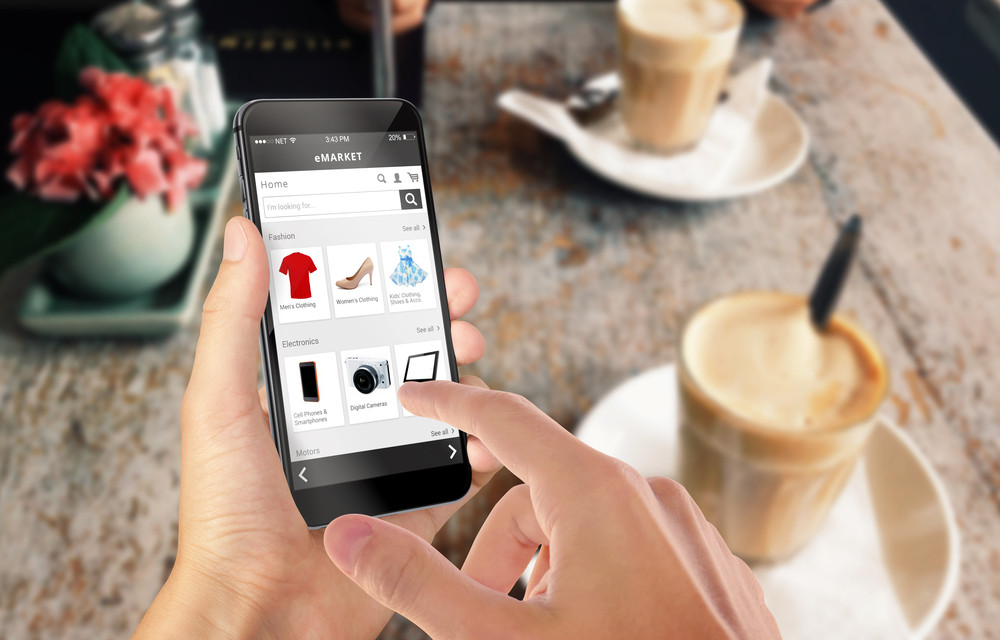Retailers embrace consumers’ shift to online channels. Indonesian retailers have embraced the need to shift their services online amid the accelerating online shopping trend.

Roy Nicholas Mandey, the chairman of the Indonesian Retailers Association (Aprindo), said many of the association’s members had adopted an omnichannel strategy, where retailers integrate offline and online shopping experiences for their consumers’ convenience.
“Ninety percent of our members have already changed their businesses by including an omnichannel,” Roy said during a webinar on Thursday.
An example of this approach was to give consumers the option to select products online but pick them up in-store, Roy added.
Online Channels
The adoption of such a strategy is deemed necessary as consumers are buying more products online during the health crisis. According to the Global Consumer Insights Survey 2020 by PricewaterhouseCoopers (PwC), 69 percent of the Indonesian respondents stated that they were buying more groceries online following the implementation of social restrictions to contain the COVID-19 outbreak.
More than half of the respondents, at 57 percent, stated that they were likely to continue shopping online even after the measures were removed.
Indonesia has gradually reopened the economy starting in June, despite the continuous rise of COVID-19 cases in the country. The tally of confirmed cases has reached more than 132,800 as of Thursday, with the death toll exceeding 5,900.
PwC survey also showed that online purchases even outpaced in-store purchases as the most popular channel for frequent shopping.
When asked about the purchasing frequency using certain shopping channels for their daily and weekly shopping, half of the Indonesian respondents stated that they often used online mobile channels, up from 37 percent in 2019.
On the other hand, only 42 percent of the consumers stated they still frequently shopped in-store this year, down from 52 percent in 2019, indicating that in-store shopping is now less preferred for daily to weekly shopping.
Retail firm Lotte Mart Indonesia, a subsidiary of South Korean conglomerate Lotte Corp, has undergone a process of digitization prior to the pandemic, but the health crisis has accelerated the development of the company’s online platform and reinstated its digital commitment, according to the firm’s president director, Joseph Buntaran.
“The need to have a very good and well-accepted platform is becoming a top one,” Joseph said during the webinar on Thursday.
Lotte currently provides e-commerce platform iLotte as well as online shopping service LotteMart Mall for its Indonesian consumers.
He added that the company had, in a way, “an unlimited budget” to develop its digital platform as the company acknowledged that the online landscape was going to be very important.
Despite this trend, PwC retail and consumer leader Peter Hohtoulas said that physical stores still had a significant role to play in the Indonesian market as the majority of retail purchases were still made offline.
“Even as online [purchases] increased since the COVID-19 pandemic, or in fact, over the last two or three years, it still makes up less than 10 percent of total retail sales in Indonesia,” Hohtoulas said, noting that the figure might indicate that consumers still opt to make the less frequent yet higher-value purchases in-store as opposed to online.
Indonesian consumers surveyed by PwC reported reasons such as proximity of the store as well as the availability of the items as the reasons to still visit a physical store, while others also cited the experience of physical store shopping as the contributing factor, with 33 percent of respondents stated that it was “a fun pastime.”
“I think in-store retail has a vital role to play and can compete well with the online store,” Hohtoulas noted.
“Many consider online and offline channels as competing. We don’t see that. I think online and offline should create synergy,” e-commerce giant Tokopedia cofounder and vice chairman Leontinus Alpha Edison said during the webinar.
He explained that Tokopedia had been bridging the offline and online shopping experience, such as when it partnered with the annual book bazaar Big Bad Wolf to provide the online experience of the anticipated event following the outbreak of the coronavirus. Retailers embrace consumers’ shift to online channels (Yunindita Prasidya, The Jakarta Post)





 Biggest Thai Protest in Years Puts Pressure on Government
Biggest Thai Protest in Years Puts Pressure on Government 